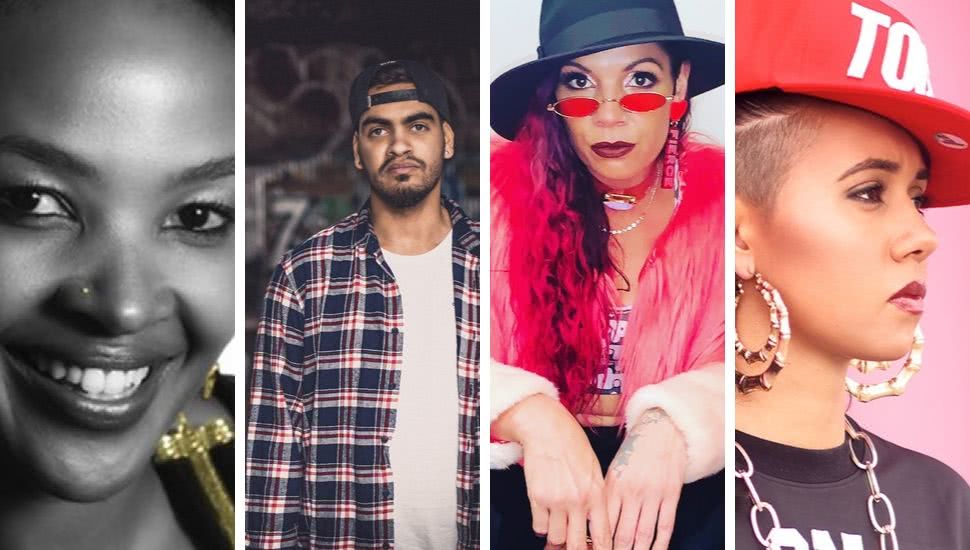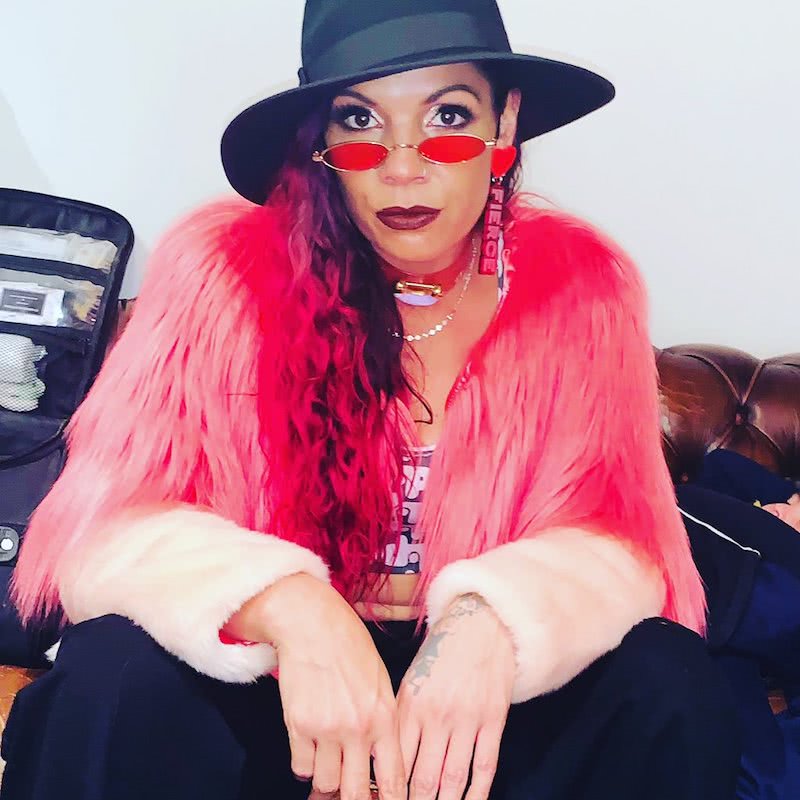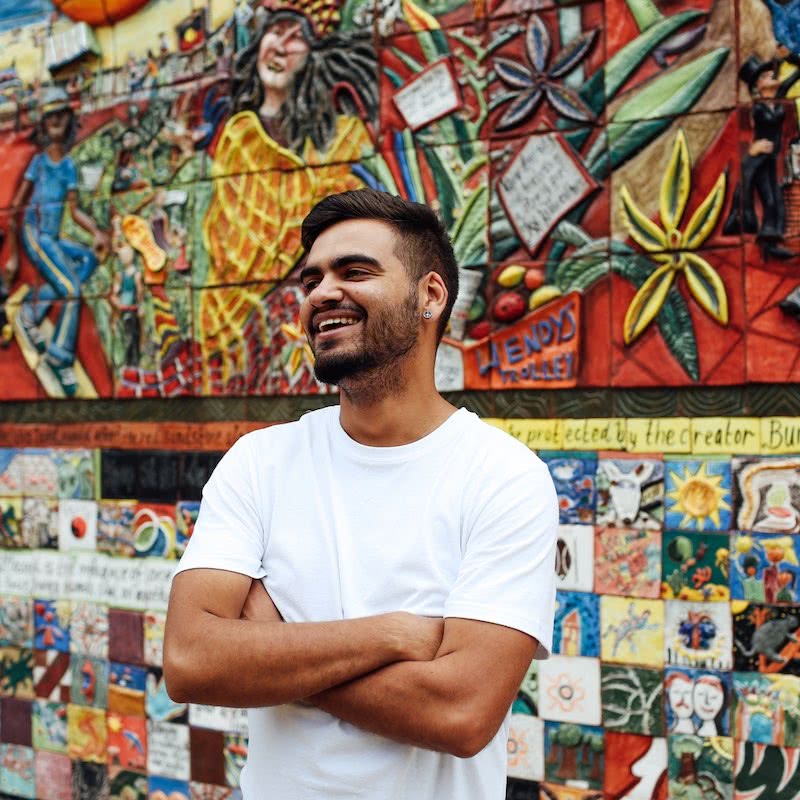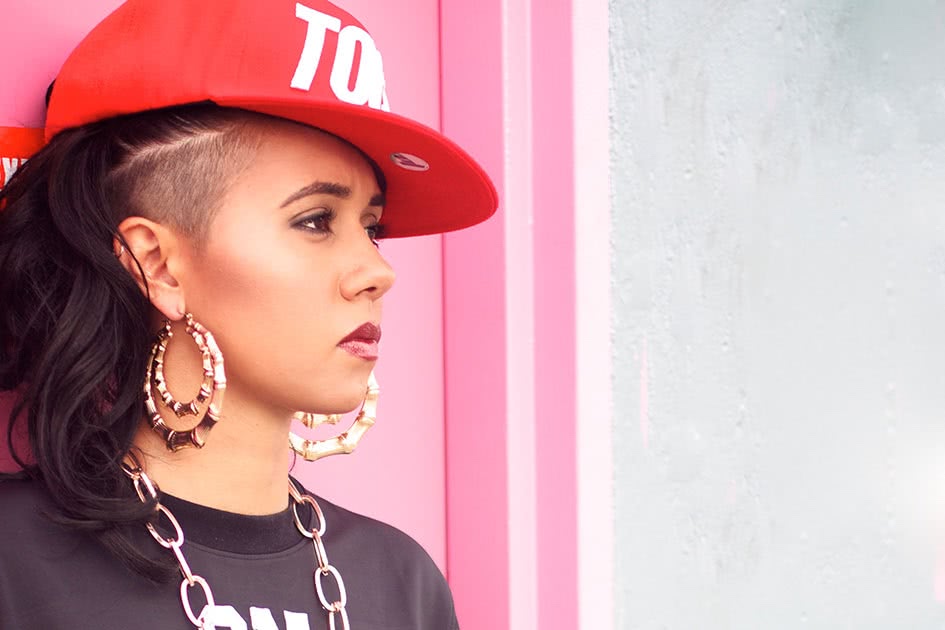Is there inclusive visibility in Australian hip hop?

Hip hop is a culture that has resonated across the world to combat oppression since its inception. Women have always been there, but they have also been made to feel like they have to lead with their masculinity to be taken seriously, which juxtaposes using their sexuality in order to be “appealing to the market”.
The fundamental elements of hip hop encourage the expression of issues in a positive way and the genre has given a platform and a voice to important issues such as police brutality, violence and racism. With all that said, hip hop has inarguably failed women as far as creating a culture of respect, inclusivity and appreciation.
So why does hip hop have such a vexed relationship with women? Is it because women aren’t typically celebrated in the genre unless they are highly sexualised major label acts? This is the central question that the Visibility in Hip Hop panel at the Australian Women In Music Awards facilitated by Kween G attempted to dig into.
The four key takeaways from the panel’s conversation:
We haven’t really been seeing much diversity in a non-tokenistic way in mainstream media.
Elaborating on this point, Indigenous hip hop artist Philly remarked that, “growing up, I didn’t see many black fellas on my TV.” The ones he did see, however, were speaking to what he was going through around themes of violence, oppression and racial bias.
Indigenous Hip Hop artist Dizzy Doolan put it beautifully when she noted, “native communities are the reason we all exist and when we speak with first nations peoples, we speak with everyone as first nations struggles speak to all struggles”.

Dizzy Doolan
Kaylah Truth, an Indigenous rapper, said she was grateful to her mum for being aware of this construct and for always making sure the rising artist saw female MCs on TV and live at gigs like Salt N Pepa, Queen Latifa, Missy Elliot and Mc Lyte.
“Even though there weren’t many women in hip hop when I was growing up, my mum always made sure I saw them.”
Women aren’t being treated fairly in the music industry in general.
This was a sentiment that Philly shared as he perceives women are being disrespected and undervalued in the industry as a whole. The rapper also noted that the sexism, racism and disrespect being echoed across the industry stems from someone’s background.
When it comes to the treatment of women, Philly suggested, “these ideas come from people’s upbringing”. Growing up in a small town (Mildura), Philly also noted, “you see small town stuff, and in our community, there was a lot of that. When you grow up around it, it’s very easy to get caught up in it.”

Philly
Philly also expressed that he was grateful he didn’t end up getting sucked into the small-town mindset telling the panel that his brothers “made sure that I never ended up that way”.
The panel also mused that there are certain ideals for how women should act, dress, speak, and that it’s systemically ingrained in our society. When you break it down, that’s thousands of years of patriarchal ideals you’re challenging if you choose to go against the grain.
The media has played a big part in being counterproductive to this movement of inclusivity and public perceptions around diversity and race.
Kaylah Truth (who is also Logan raised) brought up a very scary and almost unbelievable point around the media’s coverage on these subjects, as the “Logan Race Riots” of 2013 were actually “two families that all grew up on the same street fighting between each other”.

Kaylah Truth
However, although it was barely exciting enough to make the news, “the media grabbed it and blew it up into this huge thing when it just wasn’t” and Kaylah knew that because she was experiencing the situation first hand.
Kaylah also went on to say that in actuality, Logan gets a pretty bad rap in the media when it’s actually a pretty great melting pot for culture and diversity.
“Logan has just about every race and culture in the world, so growing up there was awesome”.
At the time the two families were brawling, Kaylah thought about getting in her car and going down to break it up. But she stopped herself and thought that there’s got to be a better way to diffuse the violence in her community.
Kaylah also sadly remarked that she’s attended “40 funerals in her lifetime, a third of them suicides and half of them were from preventable health issues”.
After the incident in 2013, Kaylah vowed to try and promote the positive things happening in her community and she did that by hosting an exhibition for the city’s ‘Logan State of Mind’ program. The project aimed to promote positivity in the community and shift the tone of the conversation around the area so it’s pretty fair to say that Kaylah is doing a great job of achieving just that.
The general consensus around this point was to represent situations accurately in the media, without sensationalising. And media, do your homework. Misrepresenting situations can do a world of damage to a community that is already starting from behind in the court of public opinion.
It feels like there is a shift when it comes to rejecting racial foundations and ideals that have been excluding anyone that isn’t male and white for centuries…
At least Dizzy reckons she feels one. Dizzy also declared that it’s inspiring seeing others from her scene break out and that seeing artists like her represented on festival line-ups like Stylin’ Up and within the industry is encouraging. “If my sister can do it, then so can I. This industry is bloody hard, but it’s really nice being able to share the stage and be around such strong indigenous women and artists”.
Being the change you want to see is the only way to combat this issue of visibility.
Philly noted that when he shot his most recent music video, it was really important to him that the crew have some kick ass women in the production team as he believes it’s important to walk the walk and “use my platform for change”.
Thanks to the power of the internet and the ongoing removal of gatekeepers, a big impact has been made in the battle to stamp out racial bias.
“I commend the sisters that are kicking down those doors, Sampa The Great especially. She’s one of the greatest acts around right now… definitely better than me,” Philly said with a laugh.
Confidence and its importance in empowering women was also raised. Dizzy put it perfectly when she told the panel’s audience to “shed that shame, cause it’s in the way!”
Dizzy wrote a song on this topic, called ‘No Shame’. Explaining the sentiment and the reason behind writing it, Dizzy advocated that “words are so powerful, so write a song about what you’re trying to do”.
Dizzy also noted that trusting in her own intelligence was a crucial skill she had to learn in empowering herself to be a better artist.
Consciously creating opportunities for women of colour and fostering that sense of community and sisterhood was also put forward as a positive step in the right direction when it comes to the issue of visibility.
Triple J Hack’s ‘By The Numbers’ report released every March does a tremendous job on quantifying the music industry’s diversity (or lack thereof) and helps keep music companies and festivals accountable and aware of their staffing and programming choices.
It is also vital that we not only look at the data and shriek in horror, but that we respectfully speak out about it and challenge it.
Ultimately, everyone needs to be the change here on this issue. So if you don’t want to join ‘em, you should probably ask yourself why you want to “beat them”.
This article originally appeared on The Industry Observer, which is now part of The Music Network.






























